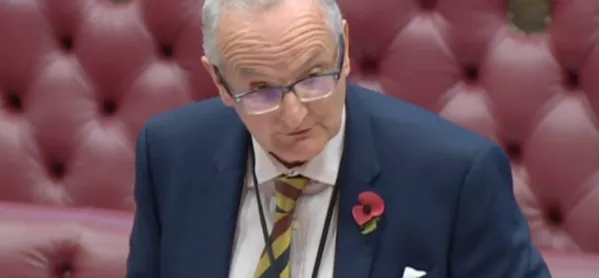Schools minister Lord Agnew faced tough questioning from heads in the North about the allocation of extra school funding today.
One head told him that extra money going into schools was set to benefit Tory areas and would not help disadvantaged pupils in the North East.
Heads at the Schools North East summit questioned why the extra schools funding announced by the government was set to benefit more affluent areas of the country.
Analysis: Extra cash set to benefit Tory constituencies
Exclusive: North East fund targets struggling schools
Background: ‘Super opportunity area’ created for North East
Sally Green, the headteacher of Thornhill Primary in County Durham said: “You mentioned the extra funding but the government is looking at minimum funding which appears to support schools in more advantaged areas and therefore would not help a lot of the children in the North East.”
Lord Agnew asked: “Do you feel you are not getting a fair whack in Durham?”
She replied: “The analysis shows that it’s actually going to support children who are in more Conservative areas of the country and that the funding will be going towards those areas rather than the disadvantaged areas of the North East.”
Ms Green was highlighting analysis last month which suggested the additional funding announced by the government was going overwhelmingly to Conservative MPs’ constituencies.
Lord Agnew replied: “The only reason it would be going to those areas that you mention is that they are getting less money. It is being done on an entirely rational basis, I know some people are trying to make some political noise about it but it is absolutely done on the numbers, what we are trying to do is ensure every pupil gets to that £5,000 in two years.
“If you are not getting such a large proportion of that increase its because at the moment you are not being short-changed as much as some other parts of the country.
Ms Green: “But you have just mentioned yourself that there is a gap and that the North East is ninth out of nine in a number of areas. So actually to give more money to areas which are ranked one out of nine doesn’t seem very fair.”
Lord Agnew highlighted the £24 million spent on the Opportunity North East programme which he said would look to close the gap in attainment between primaries and secondaries in the region and support pupils applying to go to universities.
But this attracted more criticism.
Debra de Muschamp, the NAHT president for the North East said described Opportunity North East approach as “too late and too little” and she warned that it would not make enough impact because it had “completely avoided” early years.
She also criticised the government over funding.
“You talk about parity but then you talk about disadvantage and we all know you can’t have parity when you have significant disadvantage, when you have schools coming from some of the most disadvantaged wards in the country,” she said. “How can you fund them at the same rate as Richmond-on-Thames or Bath?”
Lord Agnew said that the pupil premium had been introduced to support disadvantaged children.
Responding to the criticism Lord Agnew added: “I didn’t expect to thanked for putting an extra £14 billion into the system.”
During his speech Lord Agnew gave an update on the Opportunity North East programme.
He said that 28 secondary schools across the North East had been identified as “one vision schools”.
He added: ” Each school has been matched with a high-performing school leader who will work with the head teacher to help diagnose the most pressing priorities, and develop a bespoke improvement plan.”




